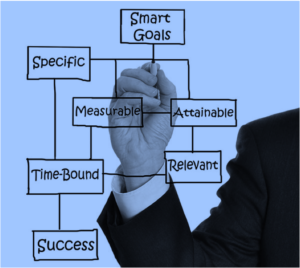The Point: So you’ve decided (or had decided for you) as a leader you should have an executive coaching engagement. In a previous post, we discussed how you should go about selecting the right coach. In this post, we’ll tackle foundational elements that will allow you to head into your coaching initiative so that you achieve your best results… Enjoy!
Now more than ever, business executives are enrolling in leadership development and executive coaching programs. These programs are no longer seen as signs of trouble (a.k.a. Penalty Box situations). Instead, top executives are somewhat expected and encouraged to take professional mentoring as a part of their leadership development at one point or another. As much as 80% of companies hire executive coaches, mentors, or external consultants. In the following paragraphs, you will get helpful tips on how to get the most out of an executive coaching initiative:
Be Clear on What You Want to Achieve
As the economy fluctuates, technology advances, and employees come and go, business leaders face the pressure of providing immediate results in challenging environments. Hence, executive coaching as a form of leadership development becomes somewhat of a necessity. However, you should be clear on your goals (i.e. What you want to achieve from the coaching sessions).
Of course, executive coaching is a highly customized service since challenges change from organization to organization. Your goals could fall somewhere along the lines of understanding your strengths and weakness, redefining your values and purposes, making you a better planner, broadening your perspectives, and maintaining confidentiality for example.
Find a Goal Oriented Coach
While you need to define your expectations, your coach should be goal-oriented, discussing objectives and goals for the sessions early on, and also guiding you in what kind of approach they will follow. For instance, they should clarify whether the focus will be on personal development or organizational planning. Coaches should also let you know what their role will be during the sessions and describe the degree to which they will challenge and stretch you, and what kind of communication they expect from you.
Determine Duration and Medium
Determine which meeting arrangement works best for you; face-to-face, virtual meeting space, phone, email, etc. You also need to discuss how the sessions are planned and connected, and how much time elapses between them. Your coach may assign some ‘homework’ between sessions. While some coaches only communicate with you during sessions, others leave post-session communication open to help you if an important issue arises. It’s important to identify what works best for you.
Be Willing to Learn
Leadership development and executive coaching works best if you’re open to the experience. That is why you/your company is paying thousands of dollars by the hour to invest in your development. You should be honest about your abilities, be patient while being evaluated, and be open to change. You may be a good learner, but you also need to be enthusiastic about the learning process. Learn from others but do it your own way, and take responsibility for whatever happens.
Summary
Ultimately, since it’s you/your organization that matters most during a coaching initiative. You should leverage the skills, experience, and insights of your chosen coach. However, know that the ultimate success/failure of the initiative is dependent upon yourself. Picking the best results oriented executive coaching requires an assessment of your goals, clear communication with the trainer, and the willingness to change.
